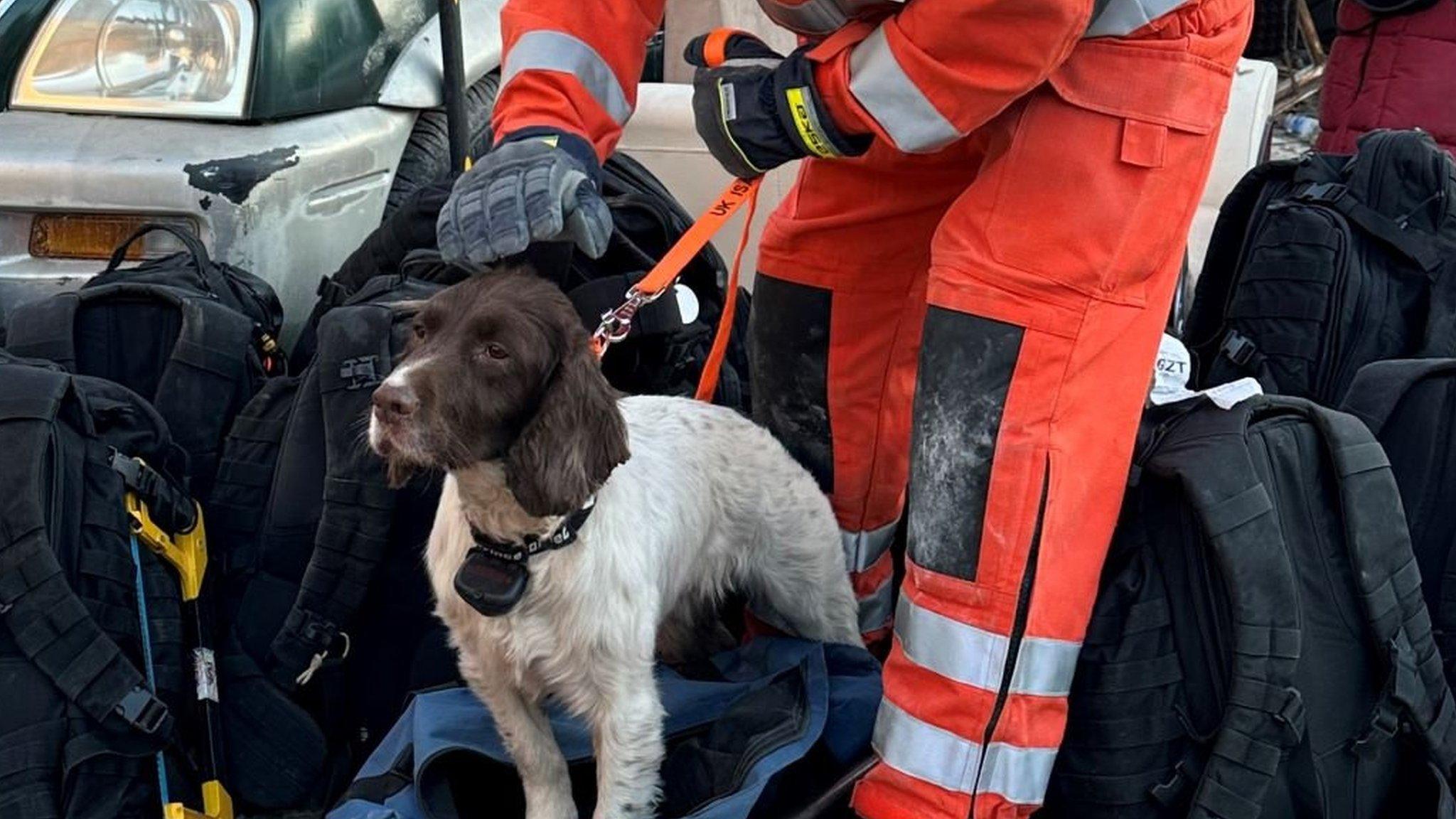Turkey-Syria earthquake: Londoners pull together as relatives stranded
- Published
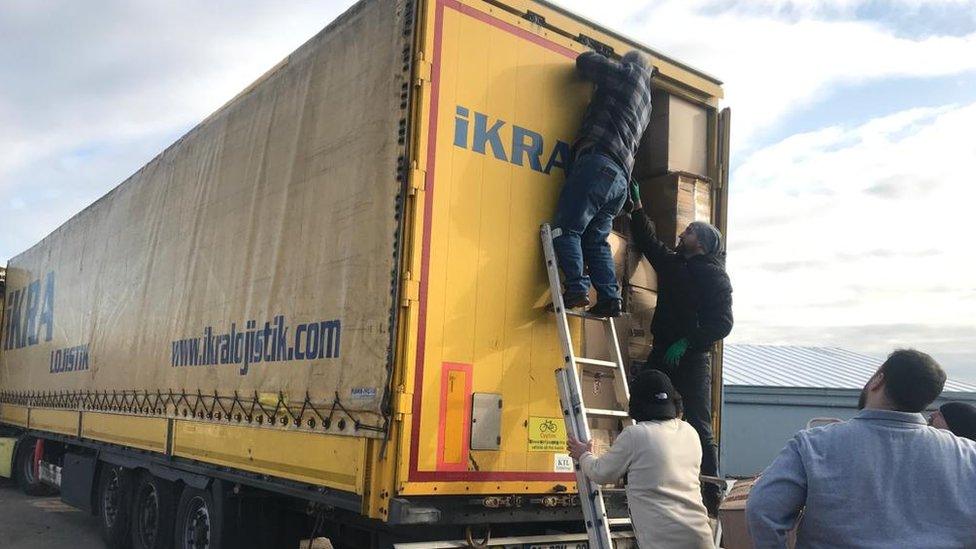
Volunteers at British Alevi Federation pack up a lorry full of supplies
Londoners have come together to donate and help to provide relief for Turkey and Syria.
More than 20,000 people have died since Monday's earthquakes with fears many survivors are still at risk without shelter, water, fuel or electricity.
One volunteer said her grandmother had been stuck in her car for three days with fears of water running out.
London Fire Brigade (LFB) has also sent out a team to one of the worst affected areas.
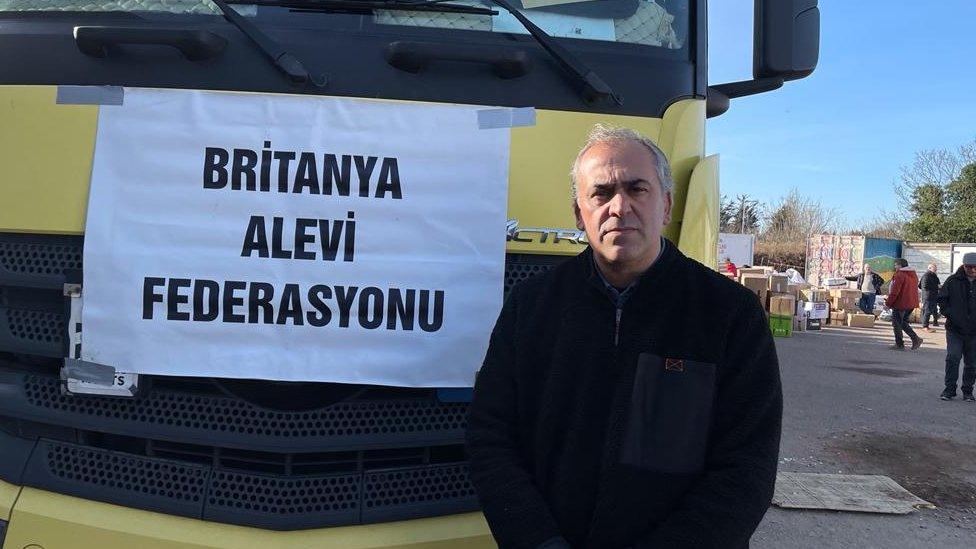
Israfil Erbil, is leading the operation at the British Alevi Federation in north London
Israfil Erbil, chairman of the British Alevi Federation, said hundreds have been spurred into action through social media calls.
He said: "Especially young people are coming together. I've lost my neighbours [in the earthquake], my friends and my colleagues. It's really difficult to cope."
Atescan Ates, a volunteer at the federation, said: "It's been quite a gruesome few days. A lot of my friends and family have been injured. But seeing stuff like this gives a bit of hope.
"We've been contacting warehouses, people with cars and we've been going all around London picking up donations.
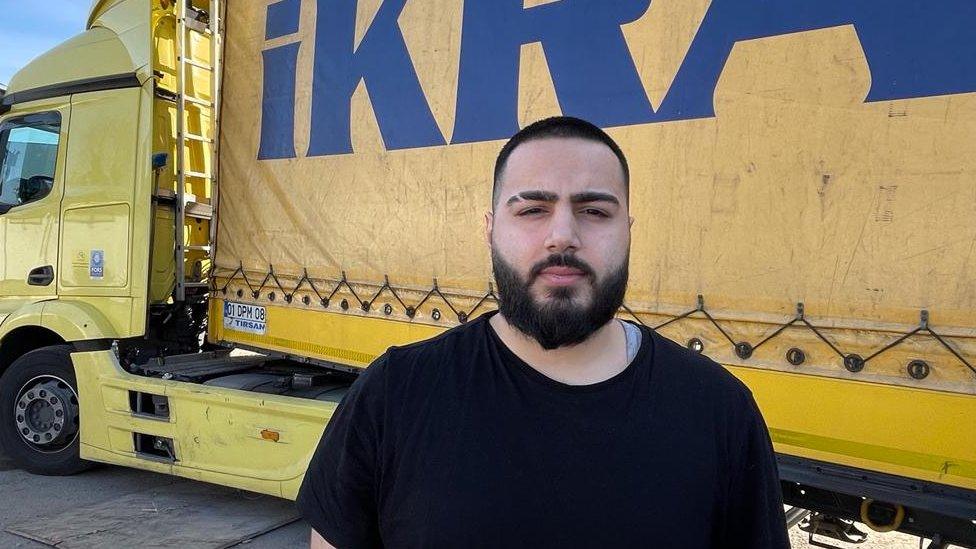
Atescan Ates, a volunteer at the federation helping to bring relief to the affected areas.
"We're trying to help out people in the villages as well because they're not getting the help they're meant to. We don't think there's equal help being provided and so we want to send the aid directly there ourselves."
Hazal Kel, another volunteer, called on the government in Turkey to do more.
She said: "My grandma was there at the time; my family's houses are all destroyed. My grandma has been in the same vehicle for three days now. She's in bits saying that they're running out of food and water. There's no help.
"Even if they are making it out of the earthquake and the rubble, people are starving and freezing to death. It's about the government providing that support to keep people alive."
A team from LFB have been operating out of a makeshift control room in Hattay province on the Turkish-Syrian border.
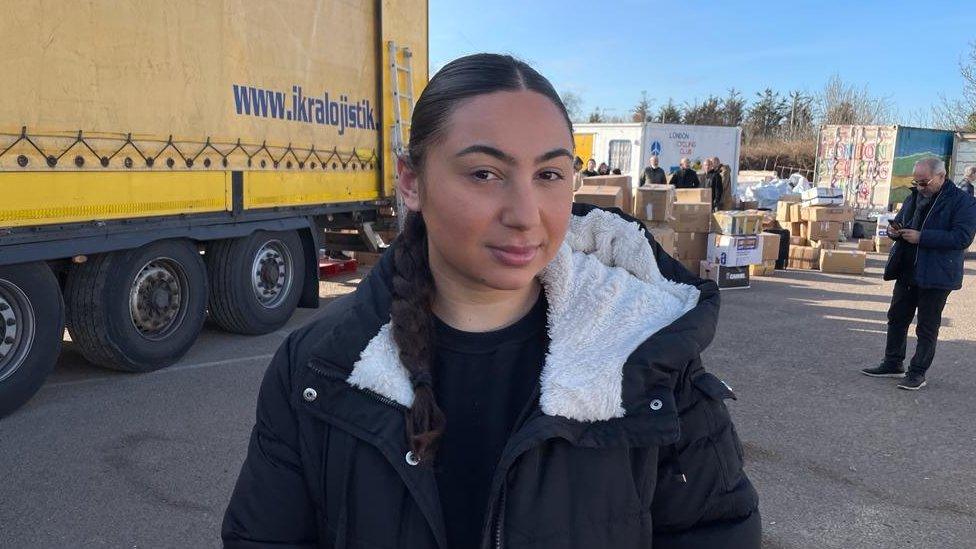
Hazal Kel's grandmother has been stuck in a car for three days
David O'Neill from LFB International Operations team told the BBC: "I would say probably 80% of the buildings are affected.
"We extracted two people yesterday in separate locations from the building: a 66-year-old lady and a 91-year-old lady. They're very dehydrated.
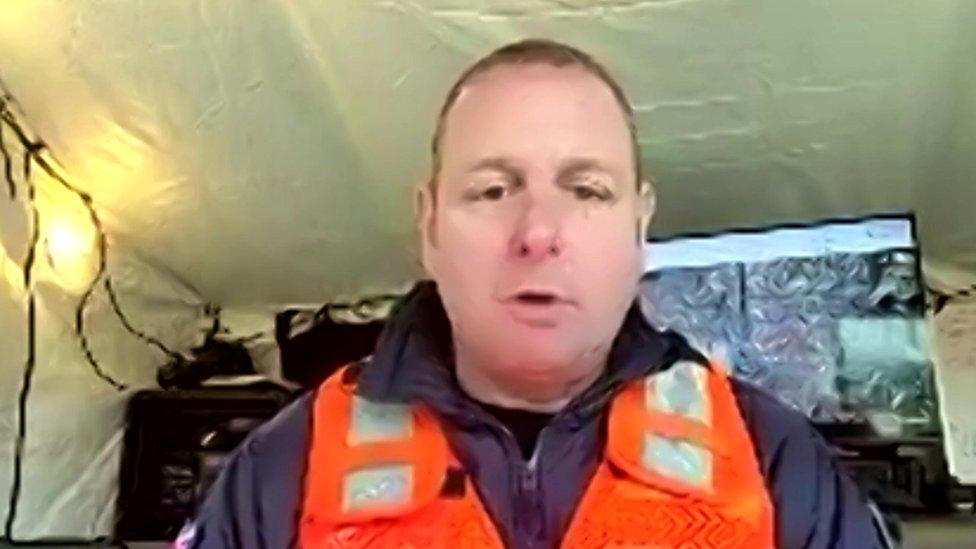
David O'Neill spoke to the BBC from a makeshift control centre in Hattay province on the Turkey-Syria border
"They're hypothermic, the temperature drops here to around -5C at night, and that's a big concern of ours. The temperature will affect the survivability of people, but they're very resilient people.
"I think people are are hanging in there and staying alive as long as they can. They're working from first light through the darkness. Our team returned back here at 02:00 local time and and after five hours' sleep, they're back out again today."
Sonay Mustafa dropping off donations in Edmonton

Follow BBC London on Facebook, external, Twitter , externaland Instagram, external. Send your story ideas to hellobbclondon@bbc.co.uk, external
Related topics
- Published9 February 2023
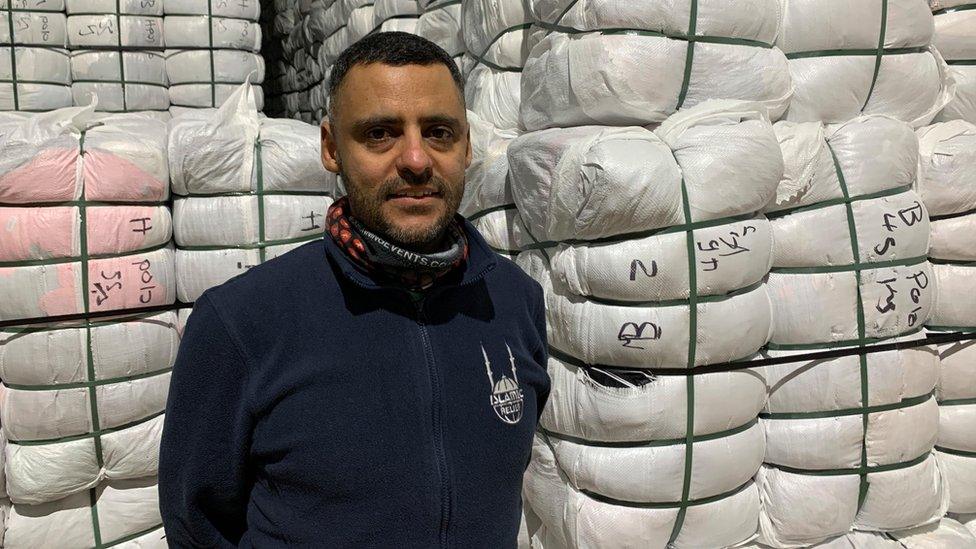
- Published8 February 2023
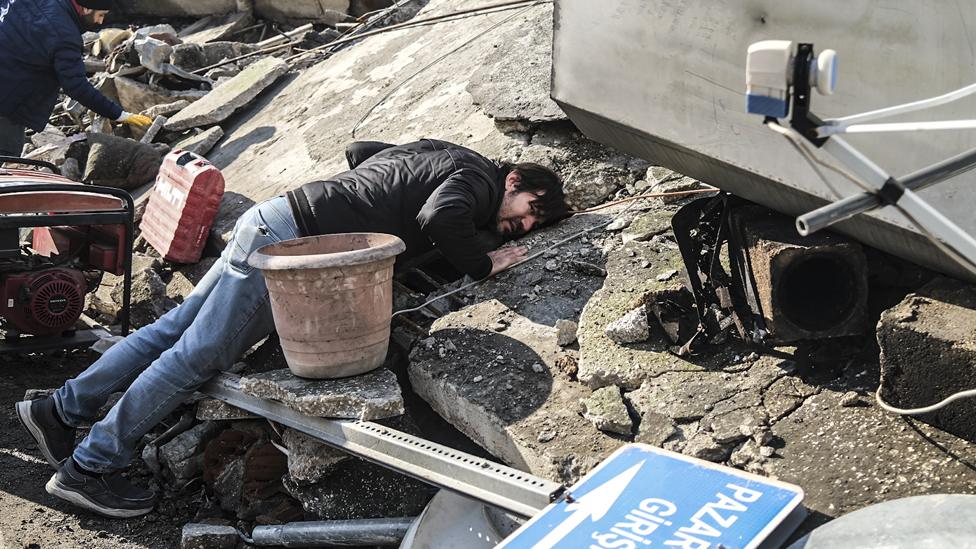
- Published8 February 2023
